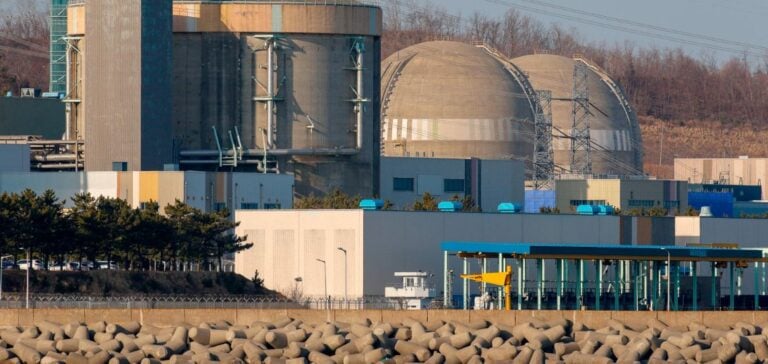South Korean engineering group Doosan Enerbility recently signed a strategic agreement with the International Nuclear Non-proliferation Center, affiliated with the KEPCO International Nuclear Graduate School (KINGS). The agreement aims to strengthen global nuclear non-proliferation efforts and accelerate the export of nuclear technologies.
The agreement, signed on December 26 during an official ceremony, brought together several high-level representatives, including Joo-ho Whang, President of the Educational Foundation at KINGS, and Jongdoo Kim, CEO of Doosan Enerbility’s Nuclear Business Group. This collaboration highlights a new dynamic between South Korea’s academic and industrial sectors.
A Strategic Focus on Nuclear Exports
The partners will focus on developing export policies and creating a favorable environment to enhance South Korea’s competitiveness in the global nuclear energy market. In close cooperation with the United States, they aim to strengthen nuclear security and consolidate the local supply chain.
A key aspect of this agreement is the development of small modular reactors (SMRs). These technologies, tailored to meet the growing energy demands driven by AI data centers, represent a strategic opportunity for South Korean exports.
Promoting a Non-Proliferation Culture
Beyond economic considerations, the agreement includes initiatives to promote peaceful applications of nuclear energy. This involves building a culture of non-proliferation as a central goal of the cooperation.
The International Nuclear Non-proliferation Center, established by KINGS in July 2024, plays a critical role in this partnership. It is currently collaborating with institutions such as the United States’ National Nuclear Security Administration and Sandia National Laboratories. These efforts cover areas ranging from large nuclear power plants to decommissioning technologies and spent fuel management.
Strong Government Support
This partnership aligns with the energy policies announced by the South Korean government. In July 2022, a roadmap was set to maintain nuclear energy’s share of the energy mix at a minimum of 30% by 2030, alongside the goal of exporting 10 nuclear power plants by the same year.
The following month, a memorandum of understanding was signed between the Ministry of Trade, Industry, and Energy, Doosan Enerbility, and other nuclear sector stakeholders. This commitment aims to revitalize the nuclear industry ecosystem by creating new jobs, developing joint technologies, and supporting carbon neutrality.
According to Jongdoo Kim, CEO of Doosan Enerbility’s Nuclear Business Group, this agreement represents a significant step toward strengthening South Korea’s competitiveness in the global market.





















